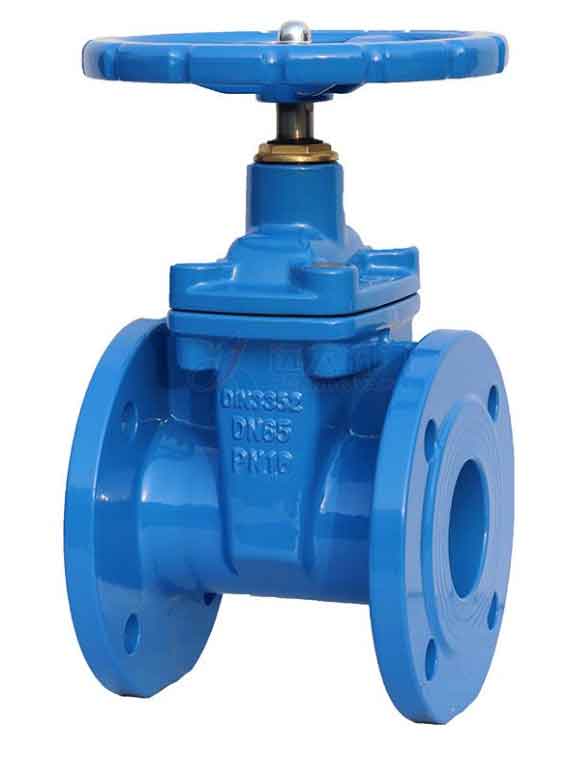Gate valves find extensive applications across various industries due to their reliable shut-off capabilities and ability to handle high flow rates. Here are some of the diverse industries where gate valves are commonly used:

1. Oil and Gas Industry: Gate valves are widely employed in the oil and gas industry for applications such as wellheads, pipelines, refineries, and petrochemical plants. They are utilized to control the flow of crude oil, natural gas, and various petroleum products. Gate valves are preferred in this industry due to their ability to handle high pressures and temperatures, as well as their reliable shut-off performance.
2. Water and Wastewater Treatment: Gate valves play a crucial role in water and wastewater treatment plants. They are used in applications such as water distribution, reservoirs, pumping stations, and wastewater treatment processes. Gate valves help regulate the flow of water, chemicals, and sludge, allowing for effective control and management of the treatment processes.
3. Power Generation: Gate valves are extensively employed in power plants, including thermal power plants, nuclear power plants, and hydroelectric power plants. They are used to control the flow of steam, water, and other fluids in various systems such as boiler feedwater, condenser cooling, turbine bypass, and fuel handling. Gate valves in power generation facilities must handle high pressures, temperatures, and demanding operating conditions.
4. Chemical and Petrochemical Industry: In chemical and petrochemical plants, gate valves are employed for controlling the flow of various corrosive and aggressive chemicals. They are used in processes such as chemical production, polymer manufacturing, gas handling, and storage. Gate valves with corrosion-resistant materials and suitable sealing mechanisms are essential to ensure reliable performance and prevent leaks.
5. Mining and Minerals Processing: Gate valves are utilized in mining operations for controlling the flow of slurries, abrasive materials, and process fluids. They find applications in processes such as ore processing, mineral extraction, tailings management, and dewatering systems. Gate valves with abrasion-resistant materials and robust construction are chosen to withstand the demanding conditions encountered in mining and minerals processing.
6. HVAC and Plumbing Systems: Gate valves are commonly used in heating, ventilation, and air conditioning (HVAC) systems, as well as plumbing installations. They are employed for regulating the flow of water, steam, or other fluids in building cooling systems, hot water distribution, and plumbing networks. Gate valves allow for efficient shut-off and control of fluid flow in these systems.
7. Food and Beverage Industry: Gate valves find applications in the food and beverage industry, where they are used for controlling the flow of liquids, slurries, and viscous materials. They are employed in processes such as food processing, brewing, dairy production, and beverage manufacturing. Gate valves with sanitary designs, hygienic materials, and smooth internal surfaces are utilized to meet strict hygiene and safety standards.
8. Pharmaceutical and Biotechnology: Gate valves play a critical role in pharmaceutical and biotechnology processes, where precise control of fluid flow is essential. They are used in applications such as pharmaceutical production, bioreactors, fermentation, and filtration systems. Gate valves with sterile designs, sanitary connections, and compliance with regulatory standards are employed to ensure product purity and integrity.
9. Marine and Shipbuilding: Gate valves are utilized in marine and shipbuilding industries for various applications such as seawater systems, ballast systems, fuel systems, and fire protection. Gate valves with corrosion-resistant materials and suitable certifications for marine environments are chosen to withstand the harsh conditions encountered at sea.
10. Agriculture and Irrigation: In agricultural and irrigation systems, gate valves are employed for controlling the flow of water to fields, crops, and irrigation networks. They help regulate water distribution and ensure efficient water management in agricultural practices.
These are just a few examples of the diverse industries where gate valves are extensively used. The versatility, reliability, and robustness of gate valves make them a popular choice for a wide range of applications that require effective flow control and shut-off capabilities.
